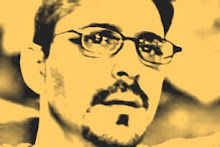To Fail or Not to Fail
 Michael Roberson asked some interesting questions on the Buffalo poetics list today, and I'd like to jot down a few remarks in response. First, his questions:
Michael Roberson asked some interesting questions on the Buffalo poetics list today, and I'd like to jot down a few remarks in response. First, his questions:
Struck by the acuteness of and subsequent attention to Christian Bök's discussion of "Writing and Failure" on the Harriet Blog, I am looking for further considerations of poetry and failure or poetry and inadequacy. In one regard, much has been written about poets and personal inadequacies or senses of failure, but what about the actual writing of poetry as an inevitably impossible, doomed, or failed endeavor? Do we continue to write poetry because it ultimately fails to do what we hope it might or should? Is the "failure of poetry" a failure of language, or poetics?
Any thoughts or ideas would be immensely appreciated.
Any thoughts or ideas would be immensely appreciated.
I’m not sure that poetics can suffer failure. As human beings who ostensibly construct our world, we fail ourselves first and, thus, any poetics that we can either individually or collectively produce.
So far as I can see, this failure is not with failure as a concept, but rather with the larger theoretical frameworks that support logics of failure. For instance, one needs the assumption of either a given or elected telos—which is, paradoxically, an a priori proposition—built into any such logic. The problem is ubiquitous.
Listen, when some form of dialectic as a mode of conceptualization functions in a system of reference to foreground its own processes—which either reproduces the authority of conceptuality, or dismantles that authority through the production of an indeterminable relationship between concept and percept—the best one can do was articulated by Beckett in Worstward Ho: “Failing better now.”
Worstward, indeed.
In both its transcendent and immanent versions, the Platonic program has run the course of history in the West for over two millennia, and there is no easy solution to the problem.
Underwritten by a Hegelian dialectical idealism, Western culture dooms itself to continually iterate the problematics of race, class, gender, and so forth. And we act as the agents. As soon as poetics actively intervenes it becomes an element of such iteration—even if that poetics struggles against the inequities and atrocities that the Platonic program produces—and one is irrevocably caught in a devastatingly powerful cultural logic that will infinitely flip the value places of subject and object like the rabbit and the duck in the optical illusion.
At that point, the only alternative is to theoretically insert indeterminacy into the equation and say, reductively, that we now have a modish hybrid of rabbit and duck.
When was the last time you saw a quacking bunny waddle down the street?
So far as I can see, this failure is not with failure as a concept, but rather with the larger theoretical frameworks that support logics of failure. For instance, one needs the assumption of either a given or elected telos—which is, paradoxically, an a priori proposition—built into any such logic. The problem is ubiquitous.
Listen, when some form of dialectic as a mode of conceptualization functions in a system of reference to foreground its own processes—which either reproduces the authority of conceptuality, or dismantles that authority through the production of an indeterminable relationship between concept and percept—the best one can do was articulated by Beckett in Worstward Ho: “Failing better now.”
Worstward, indeed.
In both its transcendent and immanent versions, the Platonic program has run the course of history in the West for over two millennia, and there is no easy solution to the problem.
Underwritten by a Hegelian dialectical idealism, Western culture dooms itself to continually iterate the problematics of race, class, gender, and so forth. And we act as the agents. As soon as poetics actively intervenes it becomes an element of such iteration—even if that poetics struggles against the inequities and atrocities that the Platonic program produces—and one is irrevocably caught in a devastatingly powerful cultural logic that will infinitely flip the value places of subject and object like the rabbit and the duck in the optical illusion.
At that point, the only alternative is to theoretically insert indeterminacy into the equation and say, reductively, that we now have a modish hybrid of rabbit and duck.
When was the last time you saw a quacking bunny waddle down the street?

